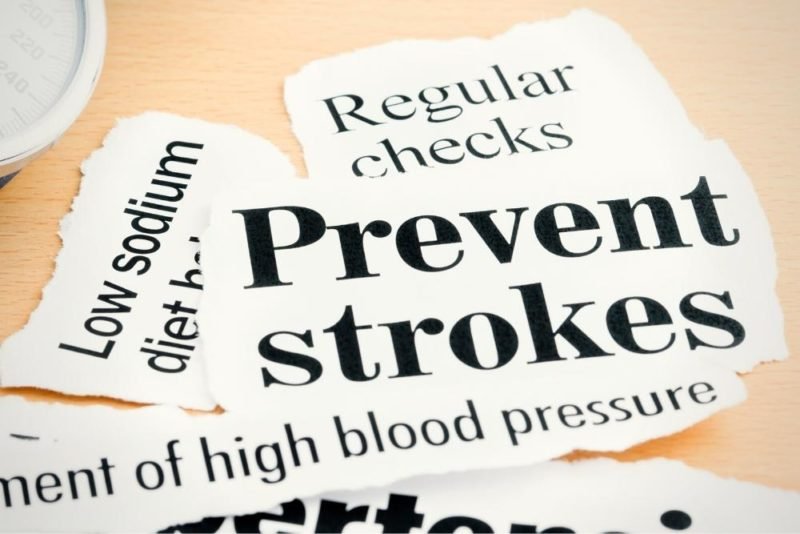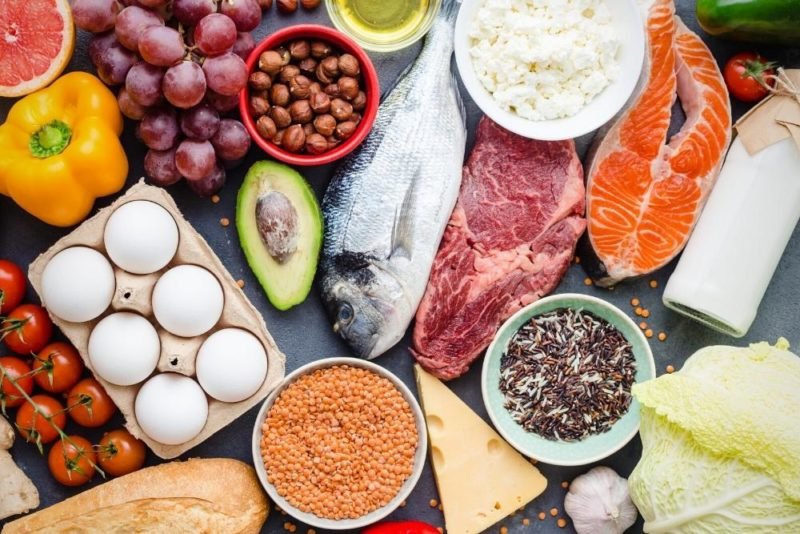[ad_1]

I the moment had a client who subscribed to a ton of well being-nourishment-wellness e mail newsletters. She usually identified that her mornings would slip, slip, slip away as she fell down the publication rabbit gap. She informed me that she was continuously looking for that a person “secret” to better health and fitness that her good friends did not know so SHE could be the a person to bestow this newfound expertise. Regretably, investing most mornings exploring for this holy grail acquired in the way of her actually doing items that would assistance her health and fitness and wellbeing, like going for a walk, doing yoga or meditating.
(Immediately after talking about how if a thing “secret” genuinely labored, it wouldn’t be a solution, we also agreed that she would unsubscribe from some of those people email messages.)
I have a master’s degree in nourishment science, and I am clearheaded on the strengths and weaknesses of this science. For case in point, a person unfortunate actuality about nourishment science that receives ignored by media coverage of new studies is that it is not generally groundbreaking. It’s prevalent for the great importance of investigate results to be exaggerated, not just in push releases put out by the universities or other study institutions, but often in the precise research abstracts. (The summary is the summary of the analyze, the tldr, if you will.)
This is why I rarely (Extremely almost never) cite a review if I simply cannot get my palms on the full text of the analysis paper and consider it for myself. At minimum a person investigation analyze has assessed how normally abstracts and push releases unsuccessful to correctly symbolize the complete study report. What the authors uncovered was pretty pathetic. Section of the dilemma is that researchers need to have to justify their funding, and if they have to have to make their results seem much more crucial than they are, then they might do just that.

Hunting past the headlines
I examine articles in the mainstream media every single single working day that misrepresent the accurate results of scientific exploration. (This occurs extra in newspapers and internet websites, not so a lot in magazines, mainly since they have longer lead times and so are additional carefully edited.) When you get to weblogs and electronic mail blasts, it can be even even worse.
In some cases, it’s the headline that is deceptive, although the report or write-up is actually relatively well balanced. However, given that a lot of people today just skim headlines, this is nonetheless a issue. (Raise your hand if you in some cases hardly ever make it past the headline or possibly the to start with paragraph.) This is one particular reason why people are so confused about how to eat! I’ve spent a whole lot of time working with the fallout of this misinformation between my clients.
Usually, that fallout sales opportunities not just to confusion, but to ingesting from a place of anxiety and judgment fairly than from a area of nurturing and self-treatment. It effects in earning food options based on beliefs and self-critical views about what and how a lot to take in. It additional erodes the skill to rely on our bodies to convey to us what, and how considerably, to eat on a certain working day, or at a individual meal. As I often say to my purchasers, why and how you take in is generally extra significant than what you eat.

Spoiler alert: there’s no magic bullet
If you like to read nutrition information, be mindful about any tale that statements that a one review alterations all the things we imagined we knew about diet. If a analyze thoroughly contradicts all former analysis on a subject matter, it’s feasible that:
- The new study is flawed
- The findings had been uneventful but acquired exaggerated in the press release
- The researchers are on to a little something, but that we’ll will need additional study with identical conclusions to ensure it
Which is a person rule about scientific study — other researchers must be in a position to replicate those conclusions. What we know about nutrition does adjust above time. That is the character of the scientific system, as we talk to thoughts, seek answers by investigate, then use those people responses to inquire new inquiries. Even so, this is a sluggish, gradual course of action. Nutrition science does not convert on a dime.
The unsexy truth about diet is that:
- There’s no a single appropriate way to consume for just about every one person.
- Cultivating a balanced romantic relationship with food items could be just as essential (in some scenarios more significant) than the foodstuff alone.
Therapeutic a fraught, procedures-based relationship with meals lets you to rely on your body’s knowledge and come across a stability of “nutritious” food and “fun” meals that is appropriate for you. And like any romance, it can take perform.
There no magic foodstuff, no magic range of energy, no magic macronutrient ratio. So why do we maintain squandering our time looking for a holy grail rather of investing that time in understanding about ourselves and what we truly require to truly feel nicely?

There is a unique spot in hell for bodyweight decline exploration
Oh, do not even get me started. Oops…too late. If abstracts and institutional press releases are dodgy on lots of scientific studies that have absolutely nothing to do with pounds decline, they get positively rotten when bodyweight loss is the subject matter. Locate me a excess weight decline research that does not start off out with gloom-and-doom statements about the “ob*sity epidemic” and I’ll try to eat my hat.
In lots of scenarios, these statements really don’t have a citation to again it up (due to the fact we all KNOW that currently being fat is the worst point to at any time occur to overall health [insert eye roll]), but when they do it is to some other study that is also building assumptions. Or, at best, chatting about ASSOCIATIONS between fat and wellness (and, bear in mind, association simply cannot prove cause and influence).
It is a analysis household of cards.
Fatphobia in healthcare…and health science

Fatphobia in healthcare is a incredibly real matter, and it also receives tremendous genuine in diet and health exploration. I examine a good deal of research on pounds and overall health as nicely as on weight stigma, and a number of matters are obvious:
- Scientists have not uncovered a way to reduce body weight and continue to keep it off for the prolonged term.
- Experiments that declare they’ve produced “successful” body weight reduction cease pursuing up with contributors ideal all around the stage the place people who reduce fat deliberately get started regaining it. (Some of this is logistical, due to examine funding jogging out, but I surprise if occasionally it is also strategic.)
- Pretty much no research on body weight and overall health take into consideration the impartial adverse health outcomes of excess weight stigma and yo-yo dieting.
- No studies have revealed that formerly fats people have the identical well being — and the identical chance of demise because of to ailment — as a fairly equal team of usually-skinny people today. (This may perhaps partly be simply because of #1.)
- Scientific tests that assert to demonstrate wellness enhancements with a little volume of weight decline (anywhere from 3-10% of starting body weight), gloss around the idea that points like increased actual physical action and much better meals may perhaps have in reality been dependable for observed wellness advancements, not the bodyweight decline alone. (The research on the Diabetes Avoidance Application, where most participants had been ready to sustain increases in actual physical exercise and didn’t get rid of a lot excess weight, is a typical instance.)
(Don’t just consider my phrase for it, read through Ragen Chastain’s article “Who Says Dieting Fails Most Of The Time?” and “The “I Could Locate 15 Studies” Fallacy.” Oh, and “Myths About the Failure Fee of Dieting.” And peruse the rest of the archives of her “Weight and Healthcare” Substack newsletter. But never do it when you would or else be using care of on your own in tangible ways….like going for a wander, doing yoga, or meditating!
Carrie Dennett is a Pacific Northwest-based mostly registered dietitian nutritionist, freelance author, intuitive eating counselor, author, and speaker. Her superpowers include things like busting nutrition myths and empowering ladies to truly feel superior in their bodies and make foodstuff alternatives that aid pleasure, nutrition and well being.
 Print This Article
Print This Article
[ad_2]
Resource connection





More Stories
Arthritis Treatment: New Approaches to Treating Gouty Arthritis
Performance Anxiety Can Be a Help Or a Hindrance
Debunking the Debunkers – The True Medicinal Value of Aromatherapy